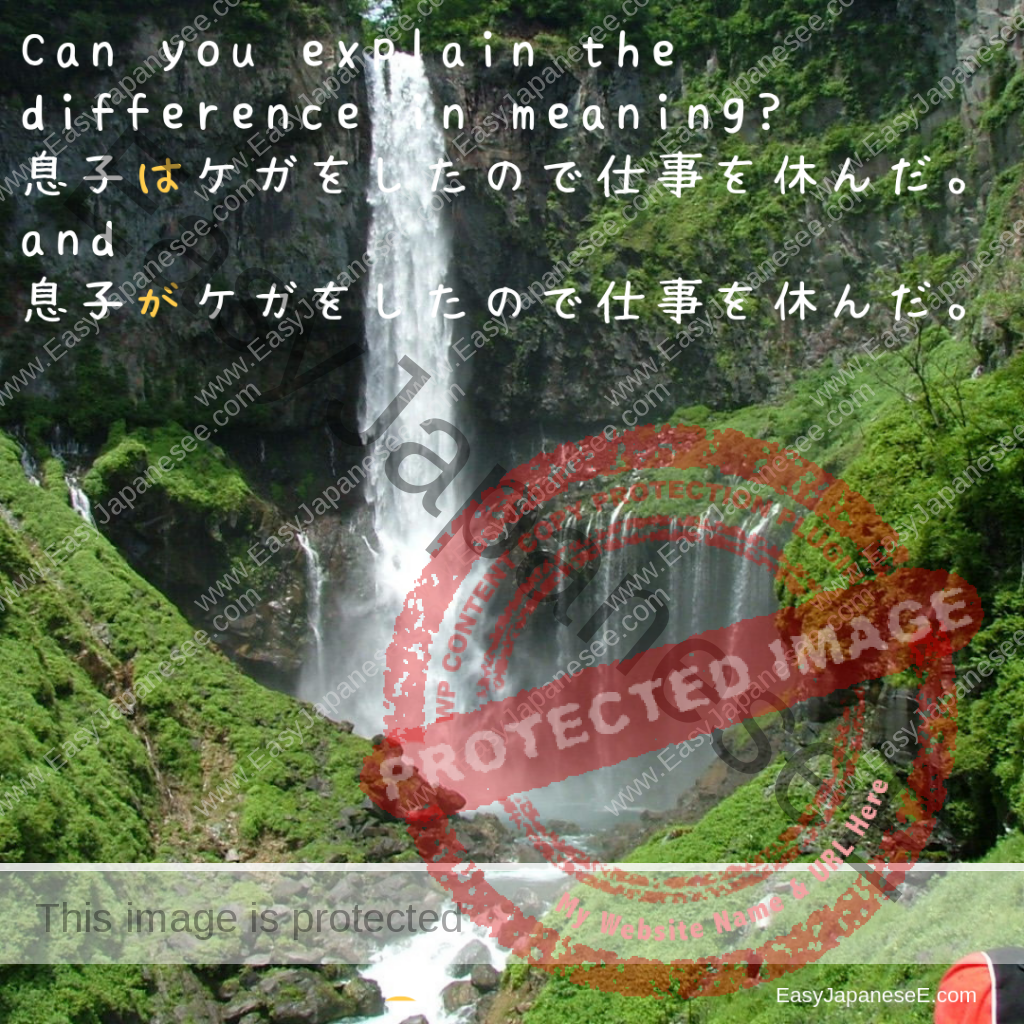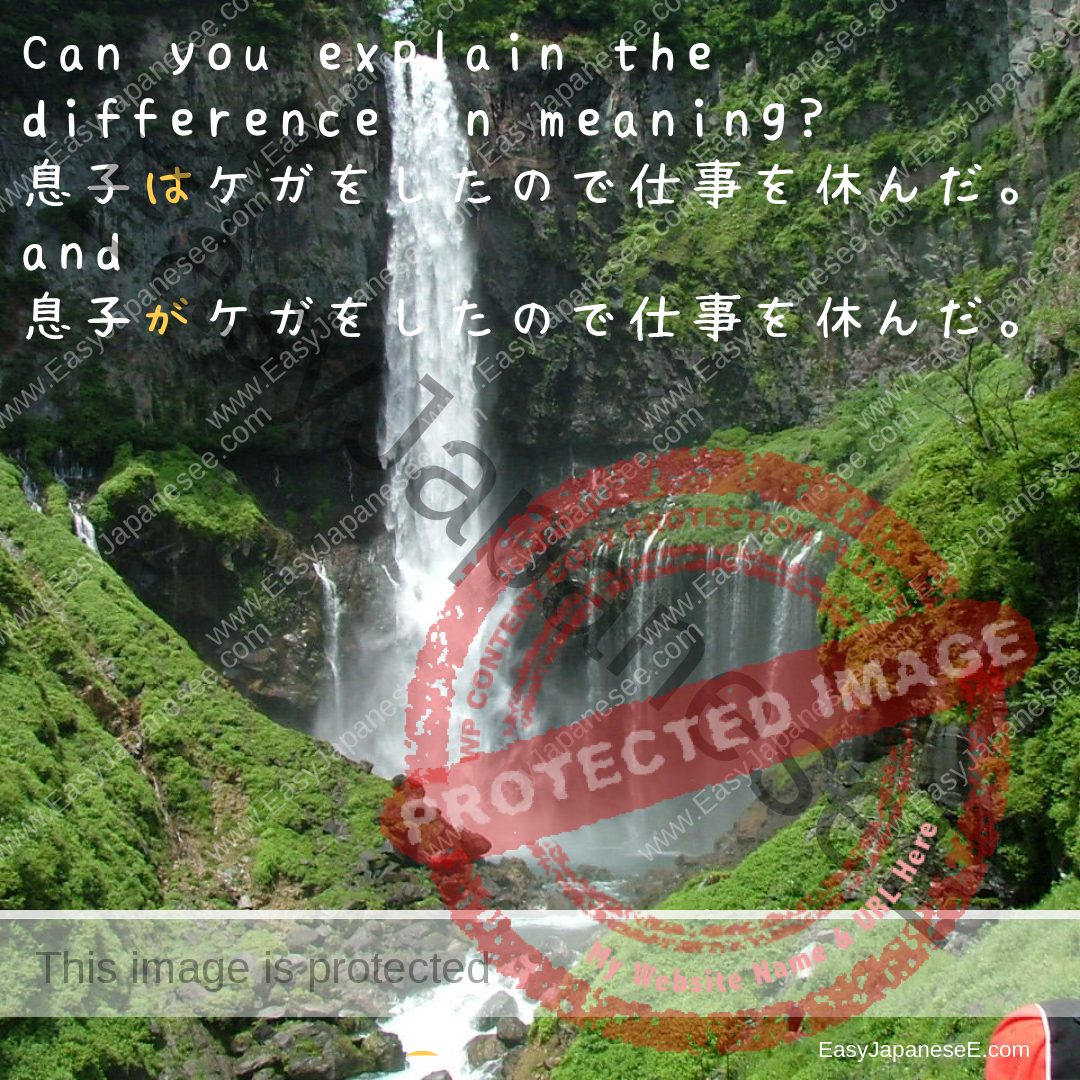
A: 息子(むすこ)は ケガをしたので 仕事(しごと)を 休(やす)んだ。
has quite a different meaning from
B: 息子(むすこ)が ケガをしたので 仕事(しごと)を 休(やす)んだ。
I don’t usually like to explain the difference between は and が because some differences are hard to explain even if the meaning difference is rather negligiable but I don’t mind this one as this difference is rather big and easy to explain. I’m sure it’s easy for you to understand, too.
Both sentences have two verbs: ケガをした (got injured) and 仕事を休んだ (took time off work). We need to work out who the subject of each verb is through は and が.
If the subjects of both verbs are the same, that is indicated by “xxxは.” Because Sentence A says 息子は, this sentence means “My son got injured and he took time off work.”
“yyyが” appears in the sentence when the subjects of 2 verbs are different and It suggests “yyy” is the subject of the verb directly after it. In this case, it is ケガをした. So, it is my son who got injured but it is somebody else* who took time off work. Then, who took the time off? Here you have to remember that If the subject is the speaker, “I”, “わたしは” can be assumed but not necessarily stated, so Sentence B should actually read: 息子(むすこ)が ケガをしたので わたしは 仕事(しごと)を休(やす)んだ。 or わたしは 息子(むすこ)がケガをしたので仕事(しごと)を休(やす)んだ。** which can be translated as: “As my son got injured, I took time off work.”
So in short:
A with は: My son got injured and he took time off work.
B with が: As my son got injured, I took time off work.
B with が: As my son got injured, I took time off work.
Now can you tell the difference between these two?
C: 娘(むすめ)が結婚(けっこん)するので、きものを買(か)った。
D; 娘(むすめ)は結婚(けっこん)するので、きものを買(か)った。
In both sentences it is the daughter who is getting married but Sentence C means it was “me” who bought the kimono while Sentence D says it is the daughter who bought the kimono.
* If the son is working, it is likely that he took time off work too in Sentence B but the sentence does not state whether or not he took time off. The son can be a child or student who is not working… That has to be worked out in the context which is not shown here.
** As shown, わたしは can be placed before 息子が but in order to avoid confusion, I prefer to put it right in front of the verb that shows “my” action (in this case 仕事を休んだ).
If you liked this article, please share it with your friends using the social media buttons below.

